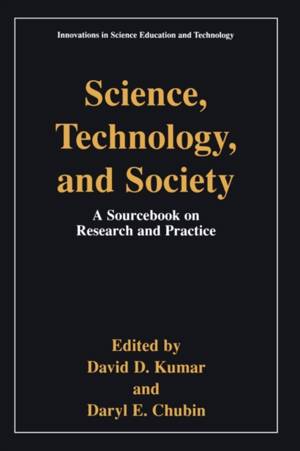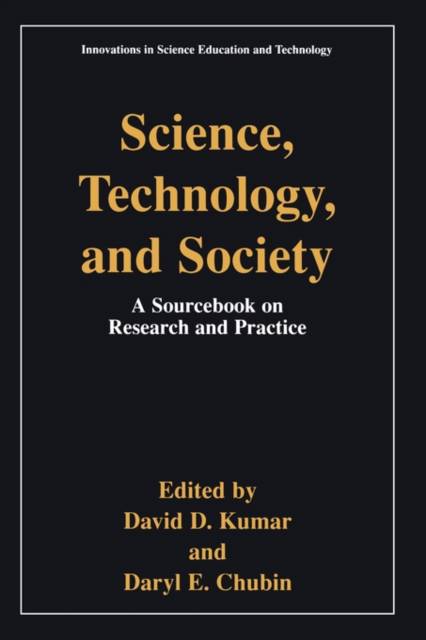
- Afhalen na 1 uur in een winkel met voorraad
- Gratis thuislevering in België vanaf € 30
- Ruim aanbod met 7 miljoen producten
- Afhalen na 1 uur in een winkel met voorraad
- Gratis thuislevering in België vanaf € 30
- Ruim aanbod met 7 miljoen producten
Zoeken
Science, Technology, and Society
Education a Sourcebook on Research and Practice
€ 97,95
+ 195 punten
Omschrijving
David D. Kumar and Daryl E. Chubin We live in an information age. Technology abounds: information tech- nology, communication technology, learning technology. As a once popular song went, "Something's happening here, but it's just not exactly clear." The world appears to be a smaller, less remote place. We live in it, but we are not necessarily closely tied to it. We lack a satisfactory understanding of it. So we are left with a paradox: In an information age, information alone will neither inform nor improve us as citizens nor our democracy, society, or in- stitutions. No, improvement will take some effort. It is a heavy burden to be reflective, indeed analytical, and disciplined but only constructively constrained by different perspectives. The science-based technology that makes for the complexity, contro- versy, and uncertainty of life sows the seeds of understanding in Science, Technology, and Society. STS, as it is known, encompasses a hybrid area of scholarship now nearly three decades old. As D. R. Sarewitz, a former geologist now congressional staffer and an author, put it After all, the important and often controversial policy dilemmas posed by issues such as nuclear energy, toxic waste disposal, global climate change, or biotech- nology cannot be resolved by authoritative scientific knowledge; instead, they must involve a balancing of technical considerations with other criteria that are explicitly nonscientific: ethics, esthetics, equity, ideology. Trade-offs must be made in light of inevitable uncertainties (Sarewitz, 1996, p. 182).
Specificaties
Betrokkenen
- Uitgeverij:
Inhoud
- Aantal bladzijden:
- 308
- Taal:
- Engels
- Reeks:
- Reeksnummer:
- nr. 6
Eigenschappen
- Productcode (EAN):
- 9780306461736
- Verschijningsdatum:
- 30/04/2000
- Uitvoering:
- Paperback
- Formaat:
- Trade paperback (VS)
- Afmetingen:
- 156 mm x 229 mm
- Gewicht:
- 467 g

Alleen bij Standaard Boekhandel
+ 195 punten op je klantenkaart van Standaard Boekhandel
Beoordelingen
We publiceren alleen reviews die voldoen aan de voorwaarden voor reviews. Bekijk onze voorwaarden voor reviews.










